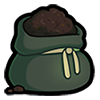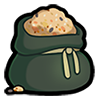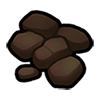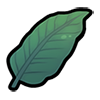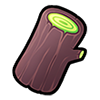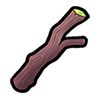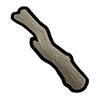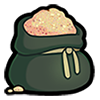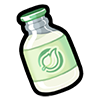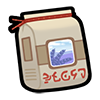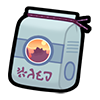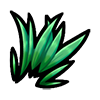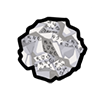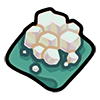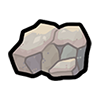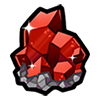Items
Satchel of Soil
It might just be a bag of soil, but it's still useful; both the microbiologists in the ARC labs and the botanists in the ARC greenhouse might need it.
Can be obtained by foraging.
Satchel of Seeds
It might just be a bag of seeds, but it could be of use to the botanists in the ARC greenhouse, or may be good to feed to some animals?
Can be obtained by foraging.
Animal Dung
Ew, a little gross. But, scientists still study animal waste to learn about their feeding habits, locations, and health. Plus, might make good fertilizer for the plants in the ARC greenhouse.
Can be obtained by foraging.
Satchel of Sand
A small bag of collected sand. These tiny mineral particles are mostly composed of silica and calcium carbonate.
Can be obtained by foraging.
Fresh Water
Putting it under a microscope will reveal a whole new world, though you may choose to sterilize it for cooking and crafting.
Can be obtained by foraging.
Saline Water
While unsuitable for consumption, this salty fluid is rich in many unique minerals and microorganisms.
Can be obtained by foraging.
Bottled Milk
Many plant milks are available in Owai-6. They are usually fortified with nutrients and all seem to have different strengths when cooking. Milk made with Sweetsap is most popular for drinking plain. It’s thick and creamy and its slightly sweet taste is to die for.
Obtained by crafting.
Bag of Flour
It’s a staple across all of Owai-6, but the secret of harvesting the best picotee grass lies with the Korso. They still cultivate this plant in modern times, often making designer strains.
Obtained by crafting.
Bag of Sugar
A variety of produce can be used to make sugar, but prickly polysa are a favorite for refined sugar. Other brands offer a less processed product but they have a grassy aftertaste. Can be opened to receive 3 Sugar Cubes.
Obtained by crafting.
Broken V-Pet
Woah, this V-Pet has seen better days... With a little determination, you think you can fix it.
This item can be found by opening Lost Backpacks.
